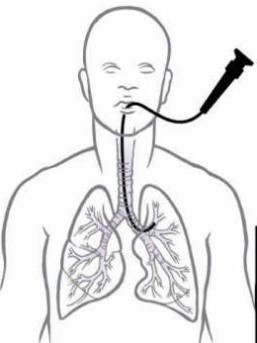
An IPMC project (Université Côte d' Azur, CNRS) identified by the Chan Zuckerberg Initiative as part of the "Human Cell Atlas" project
Sophia Antipolis, October 16th, 2017
The Human Cell Atlas is an international effort to create a reference atlas of all cells in the human body. It should make it possible to establish a universally accessible resource for studies in biology/medicine. Based on the enthusiasm of a small group of researchers, a large international consortium has been structured to increase the impact of biological research on single cells. Project partners are committed to building a freely available and easily accessible resource for data access, and to developing the software and standards required for data analysis and sharing, based on open-source and collaborative development of the best practices.
This Atlas must revolutionize the way we perceive human anatomy and cell biology. With it, we will be able to address new fundamental questions about the progression of diseases and the state of the cell. It will enable the development of new diagnostics, new drug targets, and will integrate new computer-based approaches to better stratify diseases.
The Human Cell Atlas is a large-scale, long-term international project involving several of the world's leading research institutions. Thirty eight pilot projects have been selected recently. They will play a key role in developing the tools and technologies needed to build an Atlas of the 1013 human cells.
481 applications were submitted to the first call for tenders, coming from institutions spread over 6 continents. The 38 pilot projects, which involve research and development work, originate from 8 countries in Europe, Africa, Asia and North America. This distribution illustrates the global and collaborative nature of the Atlas.
Grants awarded on the recommendation of the Chan Zuckerberg Initiative (CZI) will be awarded through a Silicon Valley Community Foundation fund. Through this initiative, CZI hopes to support and accelerate the development of very robust experimental technologies, enable the deployment of an open analysis and sharing infrastructure, and foster international collaboration in this field. The two project leaders are Dr. Aviv Regev (Broad Institute of MIT, Harvard, USA) and Dr. Sarah Teichmann (Wellcome Trust Sanger Institute, UK).
The laboratory project (IPMC, Sophia Antipolis and Nice University Hospital - Lenval Foundation) is intended to establish an identity card for cells present in the respiratory tract. The cells in the nose, trachea and bronchial tubes perform essential functions to help proper breathing function. Any dysfunction that affects them can be the cause of a serious illness such as asthma, chronic obstructive pulmonary disease (COPD) or cystic fibrosis. The IPMC project is carried out in conjunction with the adult and paediatric pneumology teams of the Nice University Hospital - Lenval Foundation (Dr Leroy, Dr Giovannini-Chami, Pr Marquette).
| The airway cells will be sampled during a bronchoscopy, an examination of the bronchi under local anaesthesia, using a fine flexible apparatus (the fibroscope) that allows different anatomical levels of the respiratory tract to be reached. Cells will be dissociated, and expression profiles of all genes expressed in each individual cell will be evaluated. Several thousand cells will thus be characterized in each experiment. |  |
IPMC research on single cell genomics have started in 2015, as part of a project supported by the “Cancéropôle PACA”, the association “Vaincre la Mucoviscidose”, the infrastructure “France Génomique” and the “Conseil Départemental des Alpes Maritimes”.
When can we expect the human cell atlas project to be completed? A minimum of five years will be required to build this atlas. But like the Human Genome Sequencing Project, or any other major research project, which has given rise to new disciplines that are still largely shaping our understanding of biology and diseases, the Human Cell Atlas is also destined to become a new reference on which a very large community will be able to rely for many years to come. It reflects a whole new way of approaching the human body.
For more information:
https://chanzuckerberg.com/human-cell-atlas | Contact : Pascal Barbry - Institut de Pharmacologie Moléculaire et Cellulaire - Université Côte d’Azur & CNRS - 660, route des lucioles - F06560 Sophia Antipolis - Phone: 04 93 95 77 00 - Email: barbry@ipmc.cnrs.fr |
| © Franck Aguila, IPMC, Sophia Antipolis |
 |
| Figure Legend: (Left) A biological sample is a mixture of distinct cells, each being characterized by its own functional and molecular characteristics (illustrated by different colors). | (Center) Following cell isolation by microfluidic manipulation (C1 Fluidigm, 10X Genomics, etc.) or by cell sorting, complementary DNA libraries are constructed, then sequenced and quantified. They represent the different messenger RNA populations associated with each cell. | (Right) Bioinformatic analyzes are undergone to characterize the different subpopulations of cells. |
About IPMC (Institute of Molecular and Cellular Pharmacology). The IPMC of Sophia-Antipolis is a laboratory of the University of Côte d'Azur (joint unit between the CNRS and the Nice Sophia Antipolis University). Founded in 1989 by Professor Michel Lazdunski, it is directed since 2004 by Dr. Pascal Barbry. 18 research teams work on key biological functions, in direct relation with human pathologies. Discoveries made by IPMC researchers contribute to the development of new treatments for invalidating diseases (cancers, neurodegenerative diseases - Alzheimer's and Parkinson's-, cardiovascular and respiratory diseases, hypertension, inflammation, cystic fibrosis, obesity , stroke, depression, pain, ...). Neurosciences, pharmacology, cell biology, integrative biology and functional genomics are strategic axes of development for the laboratory.
More information: http://www.ipmc.cnrs.fr